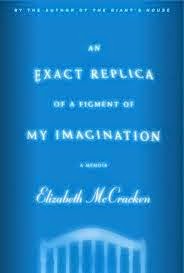Hiiragi, Sanaka. The Lantern of Lost Memories. New York: Grand Central 2019. Print.
The hands and the pendulum of the old wooden clock on the wall were motionless. Hirasaka cocked his head to listen, but the silence inside the photo studio was practically deafening.
Description:
Although the first sentences are rather ordinary, within the opening two pages one meets two very interesting characters, Mr. Hirasaka and Mrs. Hatsue Yagi. Mr. Hirasaka is the manager of a photography studio, complete with a room for taking posed photos, an astonishing number of cameras on display, and a spot for developing photos. Mrs. Yagi is a 92-year-old woman who has just awoken on a couch in Hirasaka's photo studio and learns that she is now dead.
Hirasaka explains to her that he and the studio are a sort of "staging post between life and death." He provides Mrs. Yagi a box of photographs, one taken each day during the 92 years of her life. Mrs. Yagi's task is to select one particularly important photo from each year.
You see, once you get here, it doesn't matter how wealthy or important you were in life. All you're left with are your memories.
The wonderful addition to this task is that Mrs. Yagi must then select from her yearly photos one single one that is extraordinarily important to her. Together with Mr. Hirasaka, she will revisit that day in the past represented by that photo and watch her younger self and others involved with that significant day. Of course, both she and Mr. Hirasaka will be invisible, unable to interact with anyone or change events from that past.
The photo was really only a mass of tiny dots, and yet within its four corners it seemed to contain everything important about the day it was taken -- the rush of the wind, everything she'd heard and felt ... How was it possible for all that to be hiding among those specks of colour?
"Photos do have a certain power, don't they?" said Hirasaka quietly
After that experience, her final photo will be attached to a "Lantern of Memories" in the next room, and then both she and Mr. Hirasaka will sit and watch the lantern
spin before she moves on into her afterlife.
The Lantern of Lost Memories is so compelling in its quietness, gentleness, and humaneness as secrets are revealed and incidents remembered. These are marvelous characters, perfectly calm in their conversations and journeys into the past. I loved this book and envy anyone picking it up for the first time to enjoy the tranquility and intrigue of the people, setting, language, and plot of this fine novel. Highly recommended.
[If this book interests you, be sure to check out:]
A
brilliant, quiet, cranky mathematics professor who, after a head
trauma, can only remember anything, including people's faces, for 80 minutes, before everything is erased from his mind. A young housekeeper
and her 10-year-old son are hired to take care of him. After some
struggles, they learn to adapt and relate to each other in unexpected ways. (previously reviewed here)
Happy reading.
Fred
Click here to browse over 435 more book recommendations by subject or title
(and read the introduction to The First Sentence Reader).



